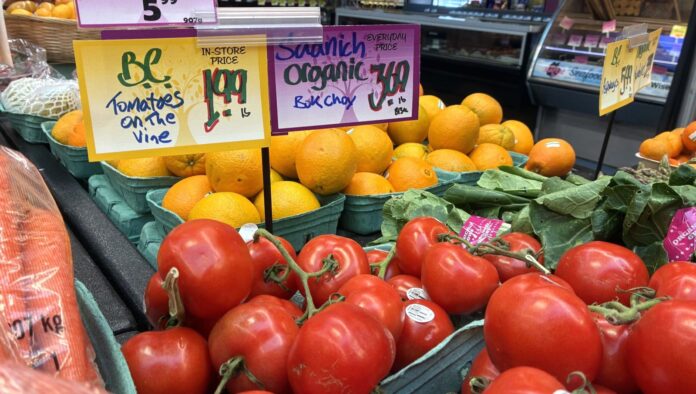A farmers’ advocacy group says Canada urgently needs a national framework to address mounting challenges for young and first-generation farmers.
In a report released this month, the Young Agrarians said the country is facing a crisis as older generations retire and fewer young people take up farming.
“The sector is not set up to support new farmers,” said national director Darcy Smith.
She said the organization has heard from farmers that their biggest challenges are lack of access to land and capital, as well as limited training opportunities.
Young Agrarians delivers the B.C. Land Matching Program, which helps new farmers find land and provides business support. The program is funded through a provincial-federal partnership and was inspired by a similar model in Quebec.
Still, Smith said the cost of farmland in B.C. remains the most significant barrier.
The latest land values report from Farm Credit Canada shows B.C.’s south coast has the country’s highest-priced farmland, with an average value of $113,000 per acre. The next highest is in southwestern Ontario, at $33,700 per acre.
“While farmers say access to land is their biggest challenge, I often say it’s their first challenge,” said Smith. “If you can’t access land, it doesn’t matter if you have knowledge or can access capital to build infrastructure.”
She said the high cost has pushed more farmers in B.C. to operate on smaller plots and diversify their production. That has, in turn, led to challenges accessing insurance and other services, as the current regulatory framework does not reflect the realities of many small-scale, diversified farms.
The report also highlights Canada’s aging farming population. Forty per cent of farmers are expected to retire by 2033, and the number of young people entering the sector has declined steadily for three decades. According to Statistics Canada, the average age of a farmer in B.C. in 2021 was 57.8.
Smith said mental health supports must be part of any national framework, citing financial stress, isolation and loss of community in rural areas as major concerns.
“Agriculture has always been a community thing … your neighbour helps you out, and you help your neighbour out,” said Smith. “We’re seeing a loss of that rural community.”
B.C. Agriculture Minister Lana Popham did not say whether she supports the call for a national framework, but noted her government has worked with Young Agrarians since 2017.
“When someone decides they want to take part in our agriculture economy, someone who wants to start farming for the first time, we try and provide the supports for them there,” Popham said. “But we also need the partnership from the federal government.”
She said she plans to meet with federal Agriculture Minister Heath MacDonald in Winnipeg this July and hopes to continue discussions around support for young farmers.
Smith said while the province has made some positive strides, the new report is about addressing the remaining gaps. She emphasized the need for collaboration between federal, provincial and local governments, as well as individual action.
“We all have a role to play in supporting new farmers … and that is in how we choose to shop,” she said. “We’re all making choices daily … that will help build those resilient food systems.”




